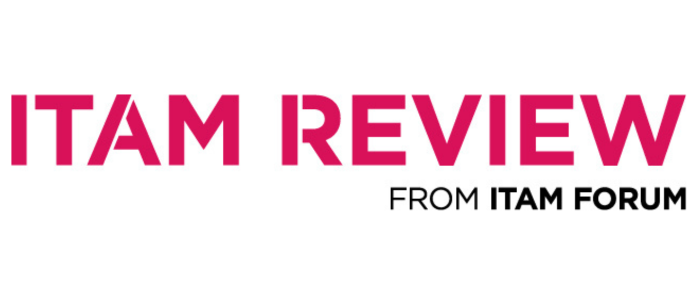Just Do It – not a good SAM strategy
 Quest Software are suing Nike, according to court documents filed on April 24, 2018. This is another case of an audit shortfall dispute making its way to the courtroom.
Quest Software are suing Nike, according to court documents filed on April 24, 2018. This is another case of an audit shortfall dispute making its way to the courtroom.
Who are Quest Software?
Quest Software are perhaps best known for their Toad database management tools. Founded in 1987, the company became Dell Software in 2012 – but this entity was then sold in 2016, to Francisco Partners and Elliott Management, and rebranded as Quest Software.
Francisco Partners are a Private Equity firm that focuses on the technology sector – and were involved with Attachmate until the MicroFocus acquisition in 2014. Attachmate have a reputation for aggressive auditing practices.
What’s happening?
In January 2017, Quest audited Nike and found they had deployed software “far in excess of the scope allowed” – both in terms of devices with Quest software installed locally and also devices where Nike “provided the ability to access or use” the software.
Additionally, Quest determined that Nike “had used pirated keys to bypass the Quest License Key System and made unauthorized copies of certain Quest Software Products”.
Quest claim that “customers must affirmatively seek out and obtain pirated keys on download sites known to traffic in counterfeit or illegally downloaded intellectual property, such as BitTorrent” – putting forward that this can’t have been an accident.
The court documents state that “Nike has refused to purchase the additional licenses necessary to bring its deployments of the Quest Software Products into compliance”.
Quest are claiming relief for:
Breach of Contract
Quest allege that Nike have installed too many copies of the software and have also allowed too many devices to access Quest software. Nike’s refusal to pay for the shortfall is taken to be a continued breach of the agreement signed in 2001.
Copyright Infringement
Quest claim that Nike “made unauthorized copies, installations and distributions of Quest Software Products”, that the infringement was wilful and that the “remedy at law” itself is not “adequate to compensate Quest” for injuries inflicted by Nike. This suggests Quest believe that money alone will not be adequate payment and could seek an order of specific performance too – perhaps an order that Nike stop using Quest software.
Violation of DMCA
The Digital Millennium Copyright Act (DMCA) states that “no person shall circumvent a technological measure that effectively controls access to a copyrighted work” – and Quest claim that Nike, by using pirated keys, circumvented the Quest License Key System.
What’s the key?
Conversations in the ITAM Review forum show there can be confusion when it comes to Quest keys:
“The details held within the license keys themselves can be inaccurate, a large number just show “Toad for Oracle”, but do not correctly show edition/ add-ons etc.”
Additionally, Quest keys need to be reclaimed from old devices prior to being re-used – meaning record-keeping and proper hardware asset management are key. If this re-harvesting hasn’t been policed properly over the past 17 years, this could lead to several installations being classed as illegitimate by Quest…however, I’m sure Nike would disagree that they need to re-purchase licenses.
The forum post also says:
“Beware trial keys, many turn out to be pirate”
Perhaps this is where part of the issue is to be found? It may be that trials installed in this way have been left in place beyond their 30-day limit and are being viewed as full installations during the audit.
Conclusion
It seems unlikely that a company of Nike’s size and stature would purposefully seek out illegal copies of software. Could it be that a rogue (or naïve) user with admin rights has brought much of this to bear? Is this situation perhaps down to a combination of poor records, a lack of hardware asset management and lax policies around trial software?
If Nike are refusing to purchase licenses to settle the shortfall, they must have a reason. Is it that they believe they are already fully licensed and this shortfall is based on errors in Quest’s records – will the Dell acquisition, and subsequent sale, have had a detrimental impact on the vendor’s historical records since 2001? Perhaps Nike have taken umbrage with what they feel are Quest’s unfair policies around keys and dormant trial software?
Is this a case of a vendor using court proceedings to intimidate a customer and push for a settlement on the shortfall? It will be interesting to see how this case progresses – but it seems there are others. From what I can see, at least 3 other similar cases are underway between Quest and their customers:
- HCL America Inc et al
- Electric Reliability Council of Texas Inc
- World Fuel Services Corporation
Does this suggest the start of a more aggressive audit strategy from Quest Software? If so, it’s probably advisable to take a look at what Quest software you have within your estate.
Further Reading
Quest vs Nike Court Document – https://torrentfreak.com/images/nikepirate.pdf
ITAM Review forum – https://forum.itassetmanagement.net/2284961/Quest-Software-Audit
Can’t find what you’re looking for?
More from ITAM News & Analysis
-
AI Is Here—And It’s Your Best ITAM Ally, Not Your Replacement
I’ve been asked several times over the last couple of years how AI will impact ITAM and how it will impact jobs. Well, who knows what will actually happen in the future, but my guestimate is ... -
FinOps for SaaS: A Step in the Right Direction, But Will It Work?
The FinOps Foundation is making a bold attempt to get better visibility and control of SaaS applications. This has been driven in part because the vast majority of FinOps teams also manage SaaS to some extent. ... -
The Forrester Wave SAM Solutions Report (Q1 2025)
Forrester, the US based research firm, recently released its latest SAM Solutions Wave report for Q1 2025. The report reflects its research and analysis of nine SAM providers it considers to matter the most, and scores ...
Podcast
ITAM training
Similar Posts
-
Will 'Sustainable IT' be Caught in the Crossfire?
In the days immediately following his inauguration, President Trump and his team declared war on Diversity, Equity, and Inclusion (DEI) programs at the federal level. The impact has been felt far and wide. Many government contractors ... -
Are we ready for outcome-based pricing?
When I first joined the ITAM industry (which feels like a million years ago), the predominant licensing metric in the market was per device. So, if you have three devices, you need three licenses. Then, with ... -
AI and ML: The Game Changers in ITAM for 2025
IT Asset Management (ITAM) is experiencing a groundbreaking evolution, heavily influenced by the adoption of Artificial Intelligence (AI) and Machine Learning (ML). These cutting-edge technologies will revolutionise conventional ITAM methods while bringing both exciting possibilities and ... -
Data Management Best Practices
Effective data management is crucial for successful IT asset management. Leveraging a structured approach like the PDCA (Plan-Do-Check-Act) cycle can help structure your efforts. This approach should be easy to integrate into the existing processes and/or ...




